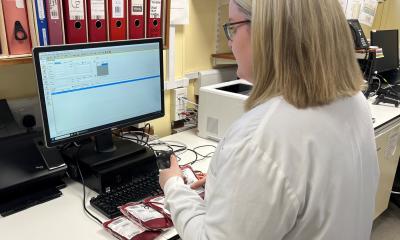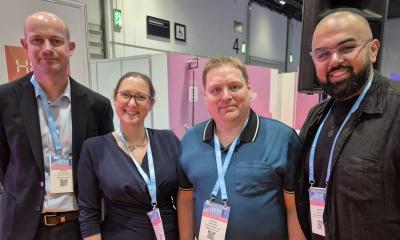Medical Informatics Europe 2012
If technological innovation, interoperability and quality of information is your purpose, Pisa was the place to be in August.

Health information systems now support not only hospital administrators but also clinical decisions. The Medical Informatics Europe 2012, the annual congress of the European Federation for Medical Informatics (EFMI) held in Italy this August, themed Quality of Life through Quality of Information, provided a programme of insights into:
- Biomedical informatics research and education
- Electronic health records (EHRs)
- Medical documentation and data quality, with a focus on coding (ICD-10, SNOMED and more)
- Evaluation of health information Systems
- The quality of the care delivery Process
- Social media and further web- Based services
With fresh ideas and inspiring youth on its side, the organisers observed: ‘It was encouraging to see that many of the submissions came from young researchers, and EFMI is pleased that MIE2012 provides an arena where they can begin to exchange their ideas and findings with their peers.’ Those peers orally presented 206 papers, 25 brief oral presentatations, showed 48 posters and 26 brief communication posters, and ran 13 workshops, six tutorials and two panels.
In a ‘Village of the Future’ presentation, EFMI members and corporate affiliates also discussed pressing issues and innovations heading to the market, including brand new solutions, initiatives and projects – from ideas to implementation to evaluation. Typical of these was DialBetics, a solution demonstrated by colleagues from Tokyo University and a vendor, which utilises mature smartphone technology for diabetes 2 self-management. The approach combines IT with natural language understanding and processing to interpret blood glucose, blood pressure, weight, exercise, and dietary content ‘calculated from a message and photograph of a meal sent by smartphone’, responding with findings and advice as to how to achieve better quality in diabetes self management. In an initial study, the data measurement rate was 97.6% – a viable platform for a routine system.
Smartphones obviously offer new possibilities in other healthcare areas. The University Hospital of Geneva HUG presented the INCA project that supports nurses, based on a structured nursing record introduced across eight hospitals in the Swiss city. Ease of use was achieved by an optimised ergonomic user interface. Presenting his vision of future developments renowned academic Professor Edward (Ted) Shortliffe, a keynote speaker, focused on informatics in practice and research as well as related education: ‘Another change in the last decade has been growth in the public awareness of health information management issues and challenges, and especially societal concerns about individual privacy and the confidentiality of personal health data,’ he said, identifying ‘a major challenge in public education and, particularly health policy leaders’.
Large parts of the congress focused on electronic health records (EHRs), their implementation, use, and evaluation. Communication of information is important for shared care and continuity of care, and the adoption of standards (HL/7, CCR, EHRcom, etc.) is growing. The relevance of interoperability for data and knowledge was discussed in more than 50 presentations, a discussion predicted to continue at national and international levels.
PROFILE
Rolf Engel brecht studied electrical engineering and economy at the University of Hannover/ Germany. He has been active in research and development in medical informatics for more than 40 years. His activities resulted in numerous national and European research projects on health information systems and leading positions in national and international institutions/ associations.
07.11.2012





